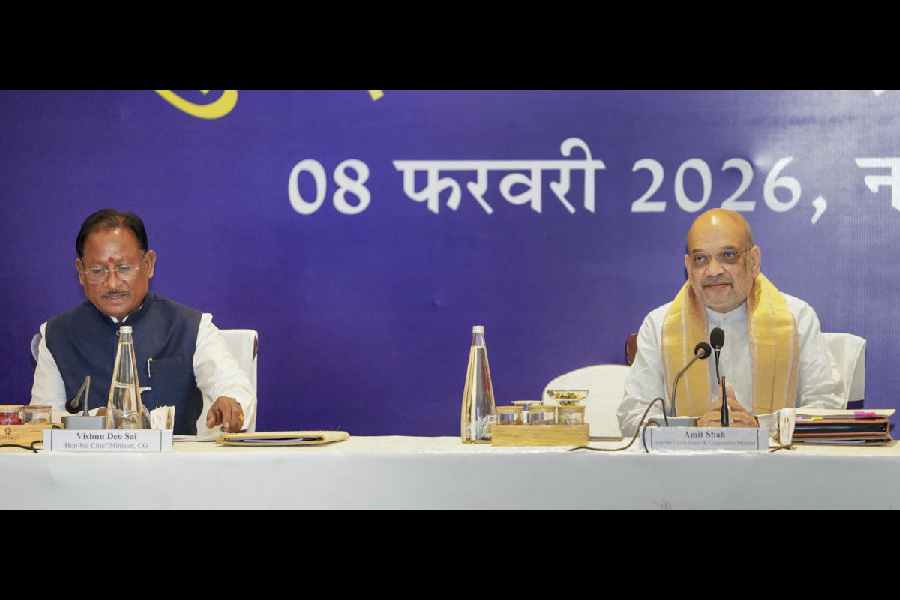New Delhi, Nov. 23: Fake stamp papers already in use will be legalised, the Centre announced today to allay fears among thousands of people who had turned jittery after the scandal broke.
A law will be introduced to uphold the validity of such documents.
“Don’t worry. Fake stamp papers already in use will not become invalid,” finance minister Jaswant Singh said on the sidelines of an economic summit here.
Top finance ministry officials later added the government would bring an ordinance to legalise transactions that were sealed using fake stamp papers between 1998 and 2002.
Later, parliamentary approval will be sought to decree it into law.
Panic had spread across the country after police unearthed a racket, which, some estimates say, flooded the market with fake stamps valued at Rs 30,000 crore. Judicial stamp papers are used to record transactions ranging from affidavits and bequests to sale and mortgage of property and financial assets.
Several law enforcement agencies, mostly at the state level, are working on unravelling the scam.
Singh indicated that the Central Bureau of Investigation, which is supervised by the Prime Minister’s Office, would also join the investigations after a nod from Prime Minister Atal Bihari Vajpayee and his deputy, L.K. Advani, who is also in charge of other federal policing agencies.
Singh said the government would move towards a non-stamp paper system. Many nations now record legal transactions electronically, collecting a fee for storing such documents in a court depository.
However, a shift to such a system will take time as courts throughout the country, down to the village level, will have to be computerised.
Till then, officials said, the government will have no option but to continue with stamp papers. The government is now considering proposals to make the stamps fake-proof yet “easily recognisable”.
The finance ministry had held a meeting on Thursday to take stock of the scandal and its fallout. Nashik’s government press, from where the alleged mastermind, Abdul Karim Telgi, obtained dyes and other material used in forging judicial stamp papers, is under the control of the finance ministry’s coins and currency division.
Questions have been raised on how Telgi penetrated the establishment and whether Delhi-based ministry officials had colluded with him.
Ministry officials insist that the scam was confined mainly to Maharashtra and Karnataka, and that managers at the Nashik press could have played a role. Security agency sources, however, do not rule out the involvement of officials in Delhi.
Telgi had used printing machines junked by the press to perpetrate what is being called the biggest scam in India.
The presses were in good condition and he had used his influence with officials in Nashik to have them discarded, according to sources.
Besides buying printing machinery, Telgi is also accused of bribing employees into selling him negatives and positives to print the fake stationery.










